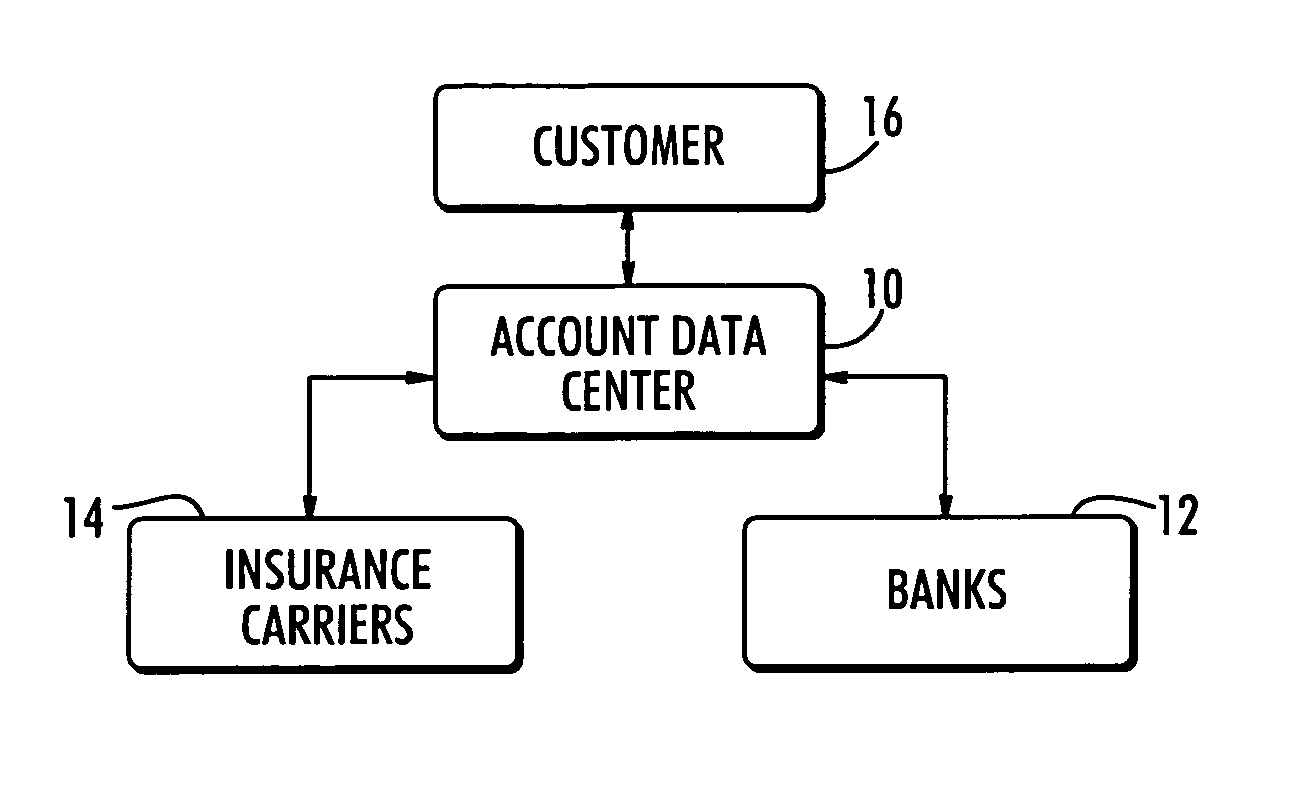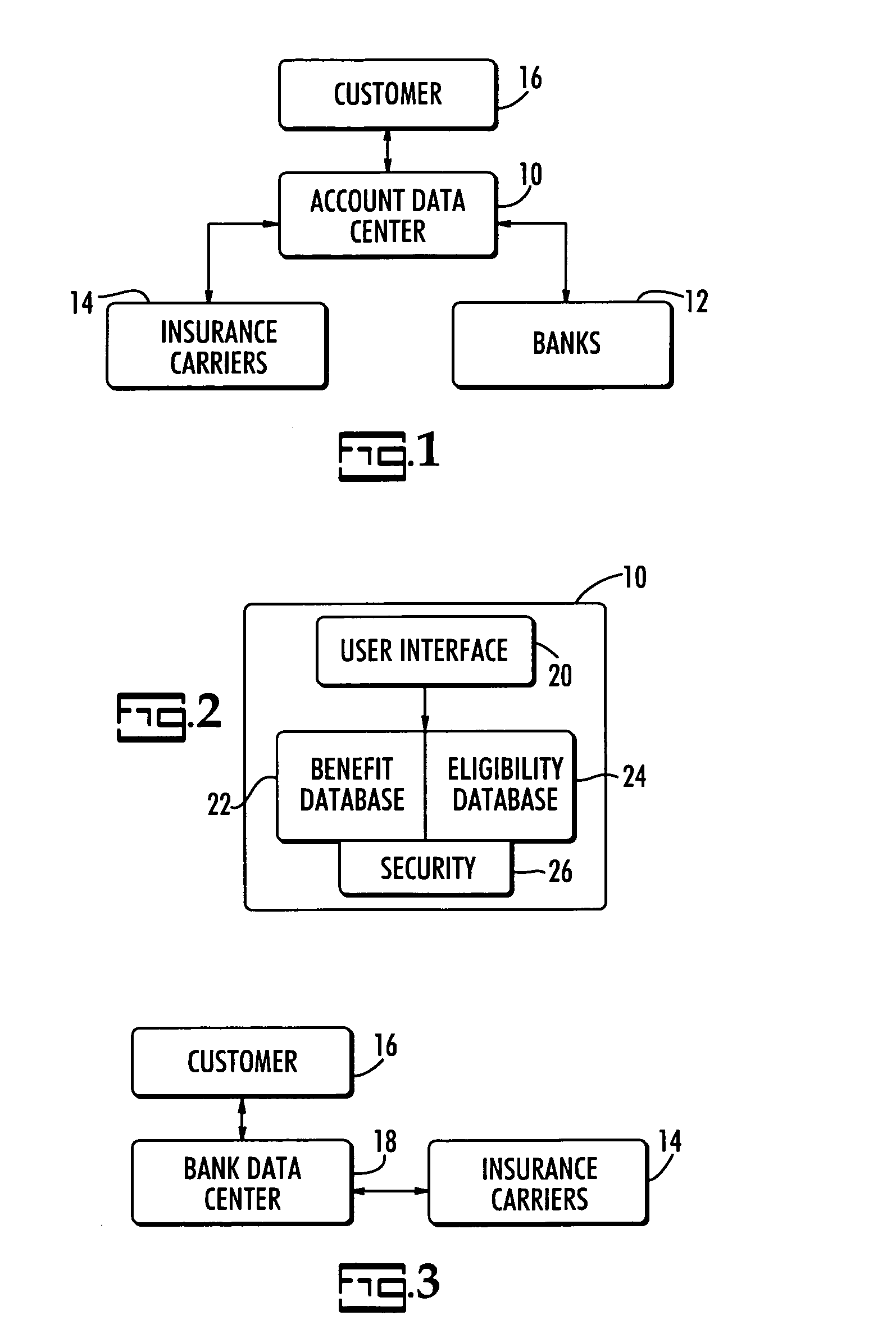Consumer directed checking account coverage system
- Summary
- Abstract
- Description
- Claims
- Application Information
AI Technical Summary
Benefits of technology
Problems solved by technology
Method used
Image
Examples
Embodiment Construction
[0028]As illustrated in FIGS. 1–3, the present invention includes a checking account system. All the automation and never ending integration of new features into checking accounts has effectively created an account that is a life mirror that moves in parallel to the customer's own complex time starved daily lives. The stresses of being “on the edge in our lives” are reflected in checking accounts. If something goes bump in the life of the customer and he or she fails to deposit on time the required funds to support life style commitments, customers quickly learn that all that friendly automation, convenience and speed of processing suddenly turns on them. The checking account now takes center stage in a drama that will quite possibly end the customer's relationship with the bank. The deposit challenged account becomes something like a fast moving freight train; very hard to stop before the damage is done! As the dominos begin to fall, not only is the account damaged but all the exte...
PUM
 Login to View More
Login to View More Abstract
Description
Claims
Application Information
 Login to View More
Login to View More - R&D
- Intellectual Property
- Life Sciences
- Materials
- Tech Scout
- Unparalleled Data Quality
- Higher Quality Content
- 60% Fewer Hallucinations
Browse by: Latest US Patents, China's latest patents, Technical Efficacy Thesaurus, Application Domain, Technology Topic, Popular Technical Reports.
© 2025 PatSnap. All rights reserved.Legal|Privacy policy|Modern Slavery Act Transparency Statement|Sitemap|About US| Contact US: help@patsnap.com


